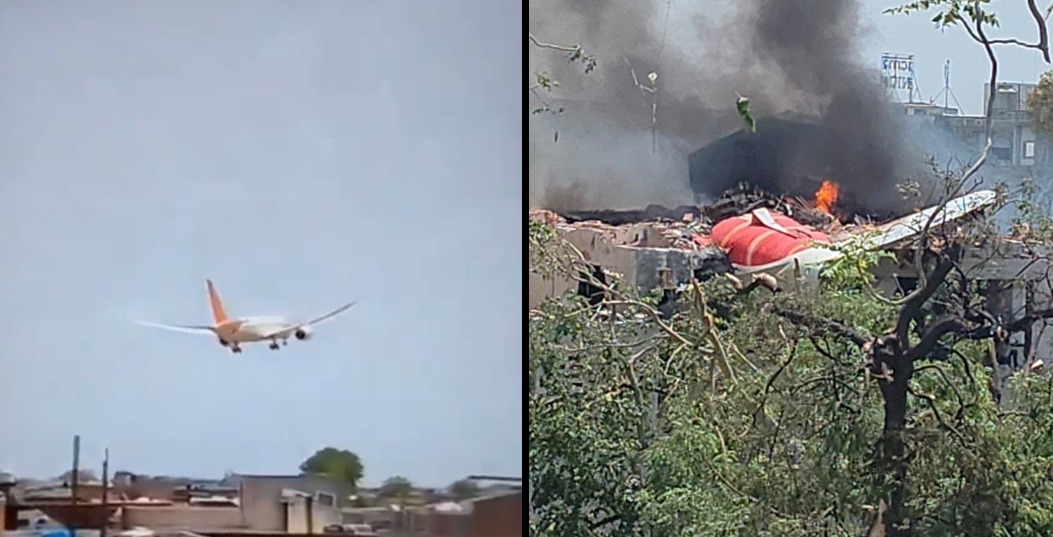It appears pilots are being blamed for two air crashes, Air India and South Korean Jeju Air, that killed hundreds of passengers. However, families and pilots’ association appear to be slamming the initial reports.
The families of victims of South Korea’s deadliest plane crash on home soil have condemned a government report which blamed the disaster on pilot error.
The Boeing 737-800 was flying from Thailand to South Korea’s southwest on December 29 last year but ended up belly-landing at Muan airport and exploding in a fireball after slamming into a concrete barrier, killing 179 people.
South Korea’s land ministry told AFP it had planned to release the partial findings of the investigation into the crash at the weekend but called off a briefing and withheld the report after the families objected, claiming it could be misleading.
The report said a bird strike damaged the plane’s right engine but the pilot then mistakenly shut down the left engine instead, a representative for the families, who saw the report, told AFP.
The error resulted in a total power loss and a failure of the landing gear system, they said.
The pilot said: “Let’s shut down engine number 2 (the right engine),” but the flight data recorder showed that actually it was the left engine that was shut down, according to the report.
“No one has directly seen or heard the cockpit voice recorder or the flight data recorder,” Kim Youn-mi, a representative of the victims’ families, told AFP.
“We weren’t given any proper explanation about those things. We need to hear that to know. We have the right,” she added.
The Jeju Air pilots’ union also criticised the report, saying it was “strongly angered” by the findings and would “firmly reject the malicious attempt to shift blame onto the pilot”.
The findings were part of an ongoing probe by South Korean and US investigators, who are still investigating the cause of the disaster.
A bird strike — with feathers and bloodstains found in both engines — and a faulty landing gear, as well as the runway barrier, are among the possible issues.
The final report is planned to be released in June next year.

Air India Crash
Two major commercial pilots’ associations have rejected claims human error caused an Air India crash that killed 260 people after a preliminary investigation report found the plane’s engine fuel switches had been turned off.
The report, issued Saturday by India’s Aircraft Accident Investigation Bureau (AAIB), did not offer any conclusions or apportion blame for the June 12 disaster, but indicated that one pilot asked the other why he cut off fuel, and the second pilot responded that he had not.
No further details about the cockpit dialogue between the pilots were revealed.
The Indian Commercial Pilots Association (ICPA) said it was “deeply disturbed by speculative narratives… particularly the reckless and unfounded insinuation of pilot suicide.”
“There is absolutely no basis for such a claim at this stage,” it said in a statement Sunday, adding, “it is deeply insensitive to the individuals and families involved.”
“To casually suggest pilot suicide without verified evidence is a gross violation of ethical reporting and a disservice to the dignity of the profession,” it said.
The initial probe finding sparked speculation by several independent aviation experts that deliberate or inadvertent pilot action may have caused the London-bound Boeing 787-8 Dreamliner to crash soon after takeoff from Ahmedabad in western India.
The ICPA was referring to a number of aviation experts who suggested that engine fuel control switches can only be moved deliberately and manually.
The Airline Pilots’ Association of India (ALPA India), another pilots’ body with 800 members, also accused the probe agency of “secrecy” surrounding the investigation, saying “suitably qualified personnel” were not involved in it.
“We feel that the investigation is being driven in a direction presuming the guilt of pilots and we strongly object to this line of thought,” ALPA India president Sam Thomas said in a statement issued on Saturday.
ALPA — which claims 100,000 members worldwide — also requested that the AAIB include it as “observers so as to provide the requisite transparency in the investigations”.
The crash killed all but one of the 242 people on board as well as 19 people on the ground.
Via: Agence France-Presse



